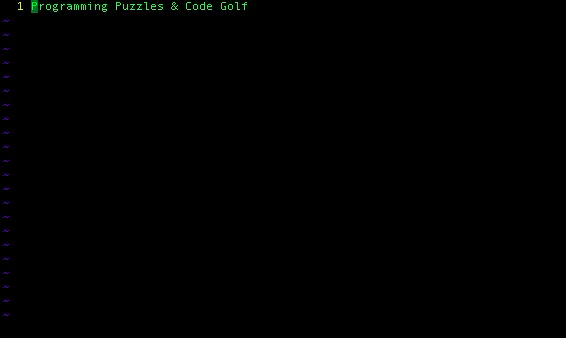25
5
Do you recognize the PPCG logo? it looks like this, when you do an ascii art of it.
+---+
|PCG|
+---+
v
Now, In this Code Golf, You will make a code, that makes logos for other sites, similar to the PPCG logo.
What You should do
The "Shortened" string will be the string, with all upper case letters and numbers in the input string.(Which would be PPCG when the input string is Programming Puzzles & Code Golf)
The "Box" (
+---+
| |
+---+
v
) should fit the Shortened string perfectly.(No bigger or smaller)
Also the v part should be exactly 1 down and 1 left to the down right +.
Then output the box which has the shortened string in it.
Example
Stack Overflow:
+--+
|SO|
+--+
v
Area 51:
+---+
|A51|
+---+
v
Rules
You may assume that the input contains at least one digit or upper case letter.
Standard code-golf rules apply.

Very closely related. Also related. – Martin Ender – 2016-07-08T07:02:19.003
@MartinEnder Yes, Very closely related, but not duplicate. – None – 2016-07-08T07:03:17.500
Also, This is Highly inspired by PPCG itself. – None – 2016-07-08T07:05:21.353
Can you clarify what the text inside should be? For example, what if the name of the site was
99 bottles of beer. Would that be99BOB? Does the box get bigger to compensate for that? Is there a maximum box size, or site name size? What kind of characters might appear in the site title? – James – 2016-07-08T07:06:26.0701@MatthewRoh The purpose of the links is so that the challenges show up in the sidebar, it's not a dupe vote. That said, I personally think removing the unwanted characters and also printing the
^doesn't add much compared to the second challenge I linked, but I won't cast a dupe hammer on that but let the communitz decide whether they consider it a dupe or not. – Martin Ender – 2016-07-08T07:07:28.257Unlimited Box and Site name size. Also, if it was
99 bottles of beer, It would be99. – None – 2016-07-08T07:08:00.113@MartinEnder The related ones you linked have a whitespace front and behind the string. mine don't. – None – 2016-07-08T07:09:56.107
@MatthewRoh The actually seems like the most minor difference which isn't going to require any substantial changes to any of the existing solutions. The best case for this challenge is the acronymisation and the
v. – Martin Ender – 2016-07-08T07:18:38.100Also related – Peter Taylor – 2016-07-08T07:21:53.970
Why does
99 bottles of beerbecome99and not99BOB? Is everything after a number excluded? – Adnan – 2016-07-08T07:24:06.113Because It is numbers and uppercase, not numbers and first character. – None – 2016-07-08T07:26:44.640
4If it was
99 Bottles Of Beer, it would be99BOB. – None – 2016-07-08T07:27:16.737Oh okay, I missed that part :p. – Adnan – 2016-07-08T07:29:17.543
@MatthewRoh That would be a useful test case to add. – James – 2016-07-08T07:32:26.937
What about uppercase letters inside the string? i.e. would
99 bOttles Of Beerturn into99OOB? – charredgrass – 2016-07-08T08:46:33.297Yes. Every uppercase letters. – None – 2016-07-08T08:52:13.383
THERE IS NO BF ANSWER SO I AM GIVING AWAY TO MY FAVORITE – None – 2016-07-29T07:27:51.537
NOOOOO @MattherRoh, I have been working on it :( I am so close. I even created an assember to convert "readable" code to BF :((( – Rohan Jhunjhunwala – 2016-07-29T16:05:55.310
@Rohan :O Im really impressed – None – 2016-07-29T23:33:08.530
@MatthewRoh if I manage to get close I'lll still post it – Rohan Jhunjhunwala – 2016-07-29T23:34:53.777
1@MatthewRoh its still buggy, let me see if i can get a bf answer after all – Rohan Jhunjhunwala – 2016-07-29T23:35:19.607
@MatthewRoh heres what I have so far. https://sange.fi/esoteric/brainfuck/impl/interp/i.html
– Rohan Jhunjhunwala – 2016-07-31T01:14:23.493Just cant figure out how to stirip uppercase characters in brainf*** – Rohan Jhunjhunwala – 2016-07-31T01:14:40.810
@RohanJhunjhunwala Check all uppercase. That would be simple I think. – None – 2016-07-31T01:30:41.180
@MattheyRoh yeah I think I may have an interesting solution – Rohan Jhunjhunwala – 2016-07-31T01:37:09.753
@Matthew I can just check if it is less than 96 :D – Rohan Jhunjhunwala – 2016-07-31T01:37:28.710
related – Taylor Scott – 2018-01-08T17:38:53.270